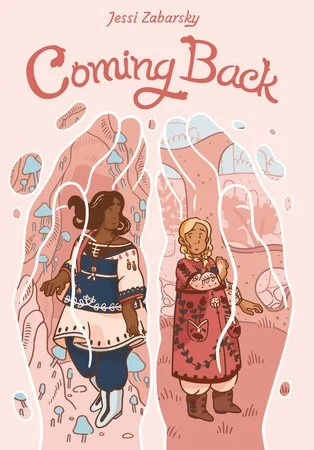Happliy Ever Afters and One True Loves by Elise Bryant
SSo we’re going to do this review a little differently than I normally do. My reviews are more summary based because I want you, the audience, to get the feel of the book. But this time, I just want to talk about how much I loved these.
First off, can I just say to the author, Elise Bryant, that you must have been a fly on the wall when you wrote these books. I mean, Tessa (Happily Ever Afters) was me, down pat. I too can’t write without a muse and have lost my mojo when I didn’t have a love interest that one time in college. But Lenore (One True Loves), I think she’s closer to who I am now. Just trying to decide her future and she’s unsure if the path she’s chosen is the right one.
I just felt seen with these books. Not only were Tessa and Lenore relatable but so were their family dynamics. I honestly thought Tessa’s mom was black and I had to go back and reread and no, she’s white. But she definitely acted like a black parent to me. And while I didn’t care that Tessa’s mom was white, I appreciated her character because she reminded me of my mom and I felt comfortable with her. And I just loved the scenes where Tessa would ask her mom to do her hair, and that’s something that’s so important to the black community.
However, Tessa struggles with being one of the few black people in her social circles and spaces. Which is understandable. She’s always towing the line of trying to palatable you others yet also owning her blackness. And I like how she doesn’t try to hide the fact that she’s uncomfortable but she doesn’t apologize for being black. She even stands up for other communities. Tessa’s brother has some cognitive impairment, and so sometimes he does things differently than we’d normally expect. But she doesn’t treat him differently than anyone else and she doesn’t let others treat him like that either. And when Nico and his friends say politically incorrect things, she corrects them (even if she still hangs out with them). Tessa actively cares even when it can get uncomfortable for her.
With Lenore’s family, she is the middle child and I’m the middle child. Plus she’s also the creative and though she’s just as smart as her siblings, she’s seen as the flighty one or the free spirit because she’s into so many different things. She kind of gave me vibes of Lynn from Girlfriends. But if you peel back the layers a bit, you’ll see that Lenore knows exactly who she is and what she wants. She doesn’t want to get stuck on a path that won’t make her happy. And she doesn’t want to put herself out there only to fail. At the root of it all, Lenore wants to make her parents proud and be who everyone wants her to be. Yet that conflicts with who she really is and she struggles to find balance in others' wants versus her own. And sometimes there isn’t one.
Both Happily Ever Afters and One True Loves tackle the issue of black identity. For Tessa, it’s accepting who you are and not being black the way others want you to be. But also about not hiding your blackness, however you define it, from anyone. With Lenore, she struggles with the age old black dilemma of having to be better than all the rest and denying your own happiness. Her father even points out that indecision isn’t a luxury she can afford because black people only get one chance. Although the way it was expressed to me as a child was that we get so few opportunities. But you get the gist.
Now for love interests. In Happily Ever Afters, Tessa, as I mentioned, is looking for a love interest so she can get her writing mojo back. And she decides that her love interest should be the hot guy in her class rather than the boy from across the street, whom she can be herself around. This is where I disliked Tessa. I understand that she is a teenager and is allowed to make mistakes but it kind of felt like she knew what the right thing was to do and did the bad thing anyway. And that does happen in high school. Lord knows I’ve done some things I’m not proud of. But for me (and I’m going to try not to spoil the ending here) it felt like Tessa had learned her lesson and still did stuff that seemed out of left field for her character and for where the novel was headed. Spoiler alert! It does all work out in One True Loves. I just wish Happily Ever Afters had been a little more realistic and less forceful on the cliche towards the end. Still, I loved every angst-y, teenage minute of it.
In One True Loves, Lenore hates Alex and at first, rightfully so. She turned down his fake dating proposal and chose to value herself. You go girl! But where she loses points for me is when he apologizes and she’s still stank. However, I understand her. She’s healing from a breakup with a guy who she was hooking up with and she found out she was the other woman. That’s something you read about in adult romance novels, not typical for your young adult fiction. But because Lenore is dealing with such heavy issues, like self worth and performing for others, she’s projecting that onto Alex and lashing out before she gets hurt. However, despite Alex being a bit of a know-it-all, he is dealing with his own heartbreak and maybe that’s why he’s patient with Lenore. He understands her pain and the pressures that come with being perfect for others but also, he probably genuinely liked her off the bat and that’s why he proposed the fake dating scenario. He just wants to be near her and help out any way he can.
Both Happily Ever Afters and One True Loves were a pleasure to read. Not only because I felt seen and they were topics from my community, but because they took me back to a time when I was a little less sure and I can see how far I’ve come since then. Maybe they could do the same for you. But why you shouldn’t read these books is because they feature multifaceted black women and the struggles that they face. These books showcase why a black woman is strong but also why she has to be. Happily Ever Afters and One True Loves teach us to treasure the black woman and that black women like me are deserving of all the love.
MORE FROM ELISE BRYANT



